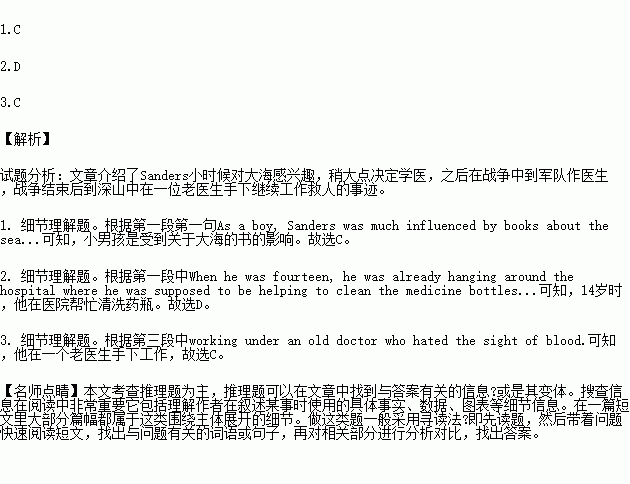题目内容
As a boy, Sanders was much influenced by books about the sea, but by the age of fifteen he had decided to become a doctor rather than a sailor. His father was a doctor. So he was often with the doctors and got along very well with them. When he was fourteen, he was already hanging around the hospital where he was supposed to be helping to clean the medicine bottles, but was actually trying to listen to the doctors’ conversations with patients in the next room.
During the war Sanders served in the army as a surgeon(外科医生). “That was the happiest time of my life. I was dealing with real sufferers and on the whole making a success of my job.” In Rhodes he taught the country people simple facts about medicine. He saw himself as a life-saver. He had proved his skill to himself and had a firm belief that he could serve those who lived simply, and were dependent upon him. Thus, while in a position to tell them what to do he could feel he was serving them.
After the war, he married and set up a practice deep in the countryside, working under an old doctor who hated the sight of blood. This gave the younger man plenty of opportunities to go on working as a life-saver.
1.When he was a small boy, Sander was influenced by books about ________.
A. the hospitalB. the warC. the seaD. the countryside
2.At the age of 14, Sanders ________.
A. worked as a doctor in the hospital
B. got along well with the patients
C. was interested in talking with doctors and patients
D. helped to clean the medicine bottles in the hospital
3.When the war was over, he ________.
A. had the happiest time of his life
B. started to hate the sight of blood while working
C. served the countrymen under an old doctor
D. had few chances to be a “life-saver” because he was younger
 阅读快车系列答案
阅读快车系列答案
